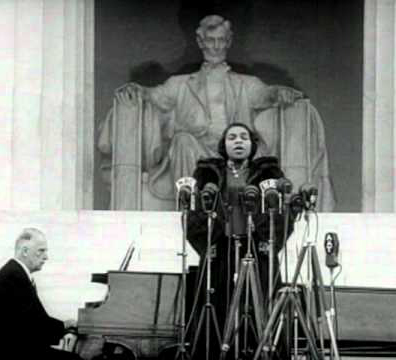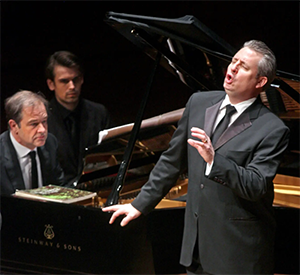by Daniel Hathaway
In a follow-up to Monday’s spectacular solar event, at noon today at the Church of the Covenant, organist Jonathan W. Moyer will present “Total Eclipse: Music inspired by the theme of light and darkness.” Click here for the live stream.
And tonight at 7:30, CIM Perspectives will host oboist Titus Underwood & pianist in Mixon Hall, and Cleveland Chamber Music Society will present tenor Matthew Polenzani & pianist Julius Drake (pictured) at Disciples Church.
INTERESTING READ:
New milestone in concert stats. The Violin Channel reports that “In January 2023, pianist Yuja Wang completed an unprecedented Rachmaninoff marathon — in which she played all four Rachmaninoff concerti, as well as the Rhapsody on a Theme of Paganini, in a single performance. She was joined by The Philadelphia Orchestra and conductor Yannick Nézet-Séguin.
“Wang, Nézet-Séguin, members of the orchestra, and some concertgoers all wore heartbeat monitors for the duration of the performance, so that the data could be reviewed afterwards and compared with what was happening in the music.
“Throughout the concert, Wang played more than 97,000 notes — equal to 621 pages of score and 2.5 hours of music. During the concert, she burned 2,427 calories, or the equivalent of 20,275 steps — while Nézet-Séguin managed 1,645 calories, or 15,079 steps.”
TODAY’S ALMANAC:

Having been neglected for decades, the music of Florence Price is now appearing on concert programs everywhere. As more and more of her music is being re-engraved and re-issued, programmers will want to keep up with the progress of that project by visiting the Wisemusic catalog here.
Robeson had an eventful career that included venturing into the troubled political waters of mid-20th century America, where he fought against facism but got close enough to the communist party to be investigated by the House Un-American Activities Committee. His life is summarized in the documentary Here I Stand, and a sample of his vocal artistry is available in this 1936, second version of Old Man River (note both versions of the lyrics in the notes).
And Marian Anderson, the first Black singer to perform at the Metropolitan Opera, thrilled a huge audience on Easter Day, April 9, 1939, “after the Daughters of the American Revolution (DAR) had her barred from singing in Washington D.C.’s Constitution Hall because she was Black. Officials of the District of Columbia also barred her from performing in the auditorium of a white public high school. First Lady Eleanor Roosevelt helped arrange for her to present the concert at the Lincoln Memorial, on federal property. The performance on Easter Sunday, April 9, 1939, was attended by 75,000.”




